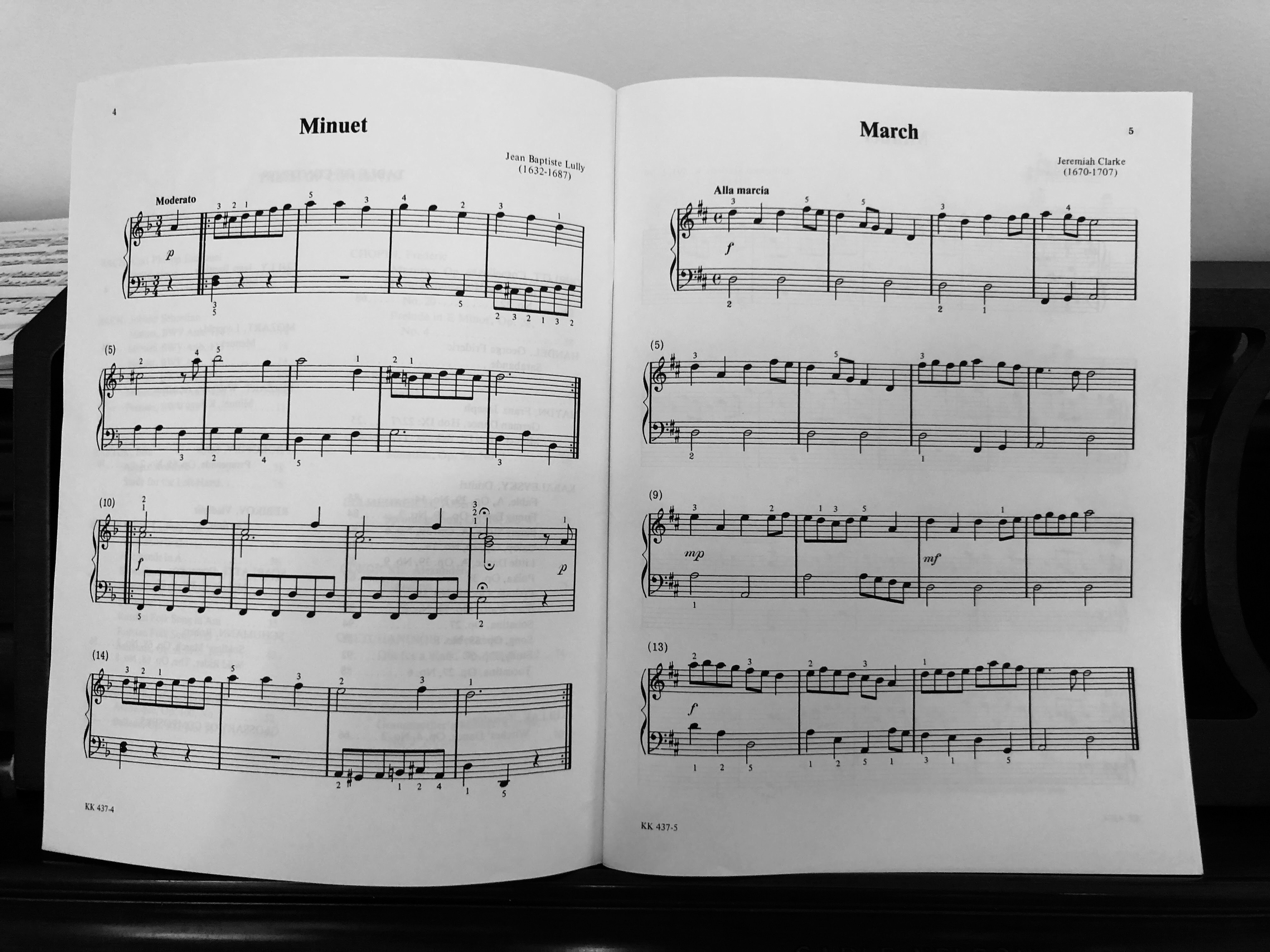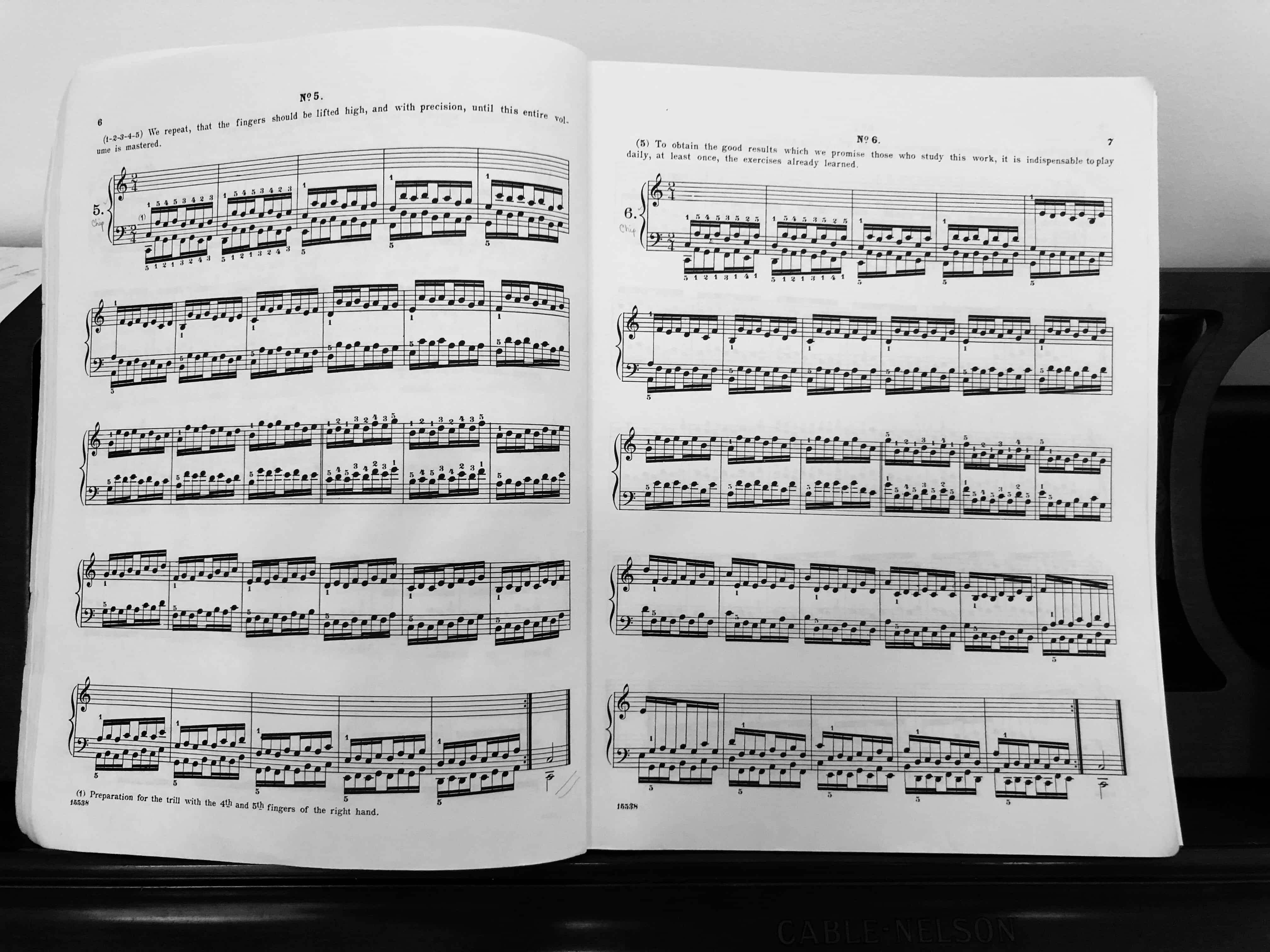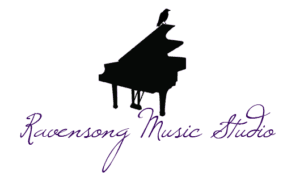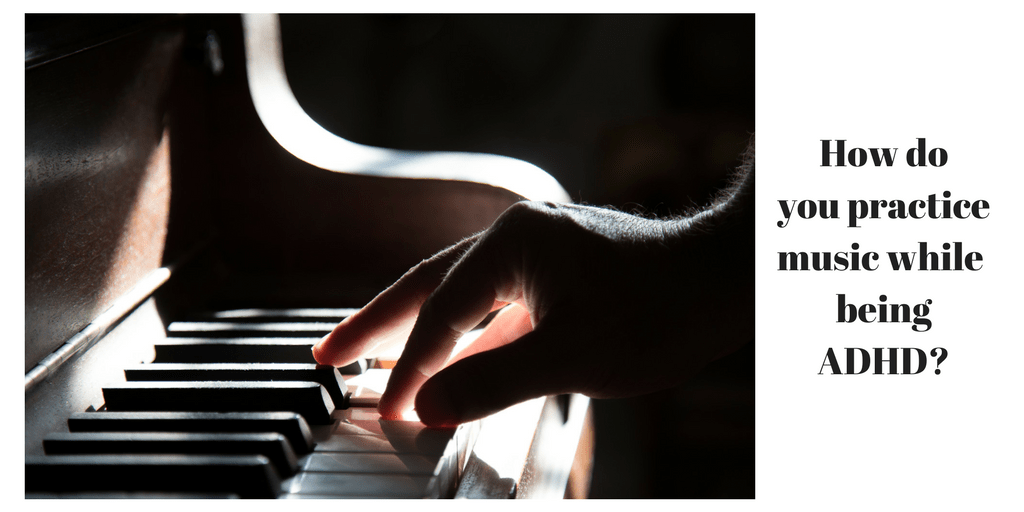Music has Always Been Part of My Life
My Mom is a classically trained concert pianist who gave local recitals and has long played for the different churches attended by my parents; my Dad sang in the shower to spare the rest of us. LOL. There was almost always music playing in our home. I started piano lessons at age 7, and my sister began shortly after. Piano lessons continued until 12yo, at which time my parents finally said that I could quit…..on the condition that I chose another instrument. I changed to clarinet for 6th and 7th grades, then switched to the trumpet. That continued through high school, including concert, marching, and jazz bands, to the point that I was lead trumpet in all 3 my senior year. Only made 3rd trumpet in the State Concert Band of Delaware, but I was also lead trumpet for the State Jazz Band that year. 😀 That’s also when I started singing, first in the high school choir, then the UNC Men’s Glee Club, led by Dan Huff, a bit during dental school (with the a cappella men’s group The Extractions LOL), and even a couple years with the Charlotte Symphony Oratorio. I even took about 6-7 months of voice lessons with the guy who played Rolf in The Sound of Music. 😀
But then, just as with my martial arts training, I took an extended break from all kinds of music performance. And I’ve missed it!
ADHD & Focused Practice Mix Poorly
It wasn’t until I began learning about ADHD after my diagnosis at age 33 that I understood 2 aspects of my musical experience:
- The ease with which I could learn almost any new instrument, even without lessons, and
- The difficulty I had with consistent practicing.
One of the interesting aspects of ADHD is the ease with which we usually pick up new skills and concepts. This isn’t a universal trait, but it is quite common, and it’s one of the reasons people with ADHD are often very good at a wide range of sports, activities, and subjects. It’s also one of the reasons that they rarely excel in any of them, because after quickly learning an interesting new skill that’s grabbed their attention, they just as quickly get bored and move on, leaving others to continue on and surpass them. This then often contributes to the frustration and even depression experienced by many undiagnosed ADHD’ers, who know that they can do well, but who don’t understand why they actually don’t.
In music, that’s particularly because of the dedicated and focused practice required to excel, regardless of whether one is a soloist or in a group. Practicing is virtually always done alone. You can’t do well in a group if you can’t play or sing well on your own, but for most people with ADHD, practicing the same stuff over and over and over again, all by yourself, is one of the worst kinds of torture. Medication and understanding of what’s happening certainly help, but it’s still not easy.
I had neither medication nor understanding of why I found it almost impossible to practice consistently.
Starting Piano Lessons at Age 45 with ADD
For as long as I can remember though, I’ve wanted to try piano again. The fact that I quit stuck in my mind as a kind of failure. I’d occasionally sit down at Mom’s piano and tap out a few bars of a piece named “Clowns,” which I learned at age 9. I can still play the first 2 lines or so. Weird how some things stick, huh? I wish I could find that piece and relearn it. Anyway…..Natalie took lessons while we lived in Huntersville with a nice old lady named Miss Dot. She struggled though, and partly because she wasn’t diagnosed with ADHD until college. Our fault, really. 🙁 Lizzie started lessons with Ms. Sandy Barber in south Charlotte after we moved, and I asked her a couple years ago if she also took adult students, to which she replied, “Most definitely!”
So this year…..I started lessons again! 3 of them so far. I began doing a series of exercises from a book that Mom gave me called Hanon this summer to prepare, and Ms. Sandy gave me workbooks for adult beginners to review the first 2 weeks. With all my experience in music, I ripped through the beginner books quickly, although I was reminded of how little music theory I ever learned. She’s catching me up on that quickly though!
Practicing is Still a Challenge
I had a rather curious insight this afternoon about how ADD affects my practice and learning, which prompted this post. It came after practicing both the first 2 pieces in the Easy Classics book that Ms. Sandy gave me and the Hanon exercise book. You can see the pages of each that triggered this idea:


Looking at these pieces of music, most people would naturally think that the second is much harder to learn and practice than the first. Lots more notes crowded together, which makes you think they’re probably played a lot faster, etc, while the first has a lot fewer notes that are more spread out.
For me, though, I’ve found exactly the opposite to be true, and I couldn’t figure it out until today. Those first, 2 easy-looking pieces of music have been difficult for me! When starting on exercises 4-6 though, while the new fingerings are quite different, I picked them up quickly. Then I realized that I wasn’t even looking at the notes; my eyes were just skimming over them as I mentally focused on made my fingers work on the pattern. That’s when it hit me…….PATTERNS! ROUTINES! These are the things that make the lives of people with ADHD so much more manageable, because they can be done almost without thought; without the mental focus and energy required for paying attention to every detail. But playing music, as opposed to playing exercises, absolutely requires that attention to detail! Phrasing, intonation, speed, volume, melody and harmony – you have to pay attention to ALL of these at once.
No wonder the exercises are coming so much more easily than actual pieces of music!
How do You Practice Music while ADD?
Well, I haven’t figure that out yet, to tell the truth. I was just so excited to at least understand why some things are coming more easily than others. And I’m kind of hoping that people reading this will have some suggestions. 😀 If you do and share them, I’ll give them a try and report back here, adding the ones that seem to work for me at least.
Suggestions from a Piano Teacher Who Also Has ADHD
 So…..this is really cool! Just a couple days after this article, I found a FB group called Life Skills for Squirrels – Your Adult ADHD Support Group and joined it. After reading some threads and commenting for a few days, it seems like a pretty legit and good group, so I posted this blog and my questions to the group, and I quickly got a response from Karla King, and Canadian piano teacher and student herself. She provided the following list of suggestions for effective practicing, and I like them so much, I’m adding them right away. If you’d like more information on Karla, you can find it here, at Ravensong Music Studio.
So…..this is really cool! Just a couple days after this article, I found a FB group called Life Skills for Squirrels – Your Adult ADHD Support Group and joined it. After reading some threads and commenting for a few days, it seems like a pretty legit and good group, so I posted this blog and my questions to the group, and I quickly got a response from Karla King, and Canadian piano teacher and student herself. She provided the following list of suggestions for effective practicing, and I like them so much, I’m adding them right away. If you’d like more information on Karla, you can find it here, at Ravensong Music Studio.
- Make it a habit. Write time into your schedule to practice regularly – daily if possible, and
- Have a plan, such as:
- Do X minutes of technique, then
- Practice piece Y until you can do that one passage properly 3 times in a row without a mistake, and then
- Practice piece Z until you know all the notes, and finally
- Practice piece Q until you have the first page memorized.
- If you take medication, especially stimulants such as Adderall, Vyvanse, etc. try to practice when your medication is fully in effect, not right after taking it or when it’s wearing off.
- I can attest to this being a very good idea! I’m also glad that I’ve started taking a 15mg Adderall (immediate release) about 5pm on workdays, because my Vyvanse is typically wearing off by dinner time.
- Keep a written practice record. I will probably start using Evernote for this, because I love Evernote and it works great.
- Use a timer so you don’t lose track of time and overdo it, as that’s not good either, especially for your hands/wrists/arms (since us squirrels also have a tendency to tunnel vision/hyper focus)
- Talk to your teacher to make sure you’re actually PRACTICING, rather than just playing for a while.
- Ask your teacher to give you parts of your pieces to specifically focus on. If they’re a decent teacher though, they should be doing this already.
Here are a couple additions that I thought of, which I’ve found work for me in other activities:
- Take a 5 minute break between sections of practice to stand up and move around. I’ve found that this keeps my mind more active and focused when I come back.
- As your teacher to regularly include music theory as part of the lesson. Details – and music theory is ALL details! – are what we usually struggle to retain, so repetition is super helpful. Spend at least 5 minutes reviewing theory in each lesson, but stop when you feel your brain freezing up. Forcing myself in those situations never seems to help.
- Practice at the same time every day as part of a routine. Be willing to be flexible if it gets too stale, but routines become habits, and those are easier than having to come up with a different time every day. For me, it will have to be right after walking the dog on weekday evenings, and probably Saturday and Sunday mid-mornings right after coffee.
